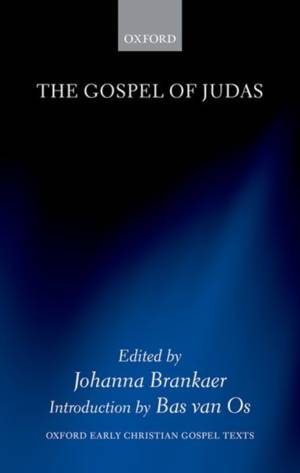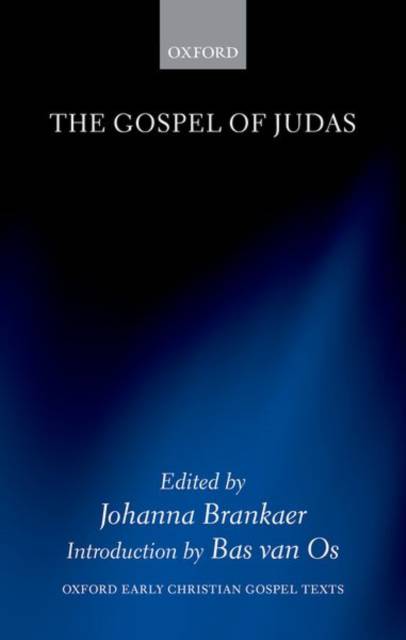
- Afhalen na 1 uur in een winkel met voorraad
- Gratis thuislevering in België vanaf € 30
- Ruim aanbod met 7 miljoen producten
- Afhalen na 1 uur in een winkel met voorraad
- Gratis thuislevering in België vanaf € 30
- Ruim aanbod met 7 miljoen producten
Zoeken
€ 306,45
+ 612 punten
Omschrijving
This book provides a critical edition of a major non-canonical Gospel: the Gospel of Judas. It is based upon the manuscript published in 2007 by the National Geographic Society as well as the fragments of the same codex Tchacos that have since become available for study. The introduction by Bas van Os explores various aspects of this writing: its inclusion in the Codex Tchacos, the literary genre and the structure of the text, the "Gospel" narrative that frames the text, the polemical story, the relation between mythological representations from this text and those from "Sethian" traditions and Genesis material, the intended audience of the text, and its provenance. Johanna Brankaer provides a comprehensive commentary covering the whole of the text. It contains philological as well as substantive elements and unveils the intra-textual coherence as well as the affinities with other, Gnostic, apocryphal, patristic, and biblical traditions. Special attention is paid to the characterization of the disciples and Judas, to the much debated sacrificial theory behind the text and its rejection of the Eucharist (and Baptism) of the apostolic church, to expressions of (astral and eschatological) determinism, and to the Gnostic protology and cosmology.
Specificaties
Betrokkenen
- Auteur(s):
- Uitgeverij:
Inhoud
- Aantal bladzijden:
- 288
- Taal:
- Engels
- Reeks:
Eigenschappen
- Productcode (EAN):
- 9780199672622
- Verschijningsdatum:
- 1/04/2019
- Uitvoering:
- Hardcover
- Formaat:
- Genaaid
- Afmetingen:
- 140 mm x 216 mm
- Gewicht:
- 476 g

Alleen bij Standaard Boekhandel
+ 612 punten op je klantenkaart van Standaard Boekhandel
Beoordelingen
We publiceren alleen reviews die voldoen aan de voorwaarden voor reviews. Bekijk onze voorwaarden voor reviews.











